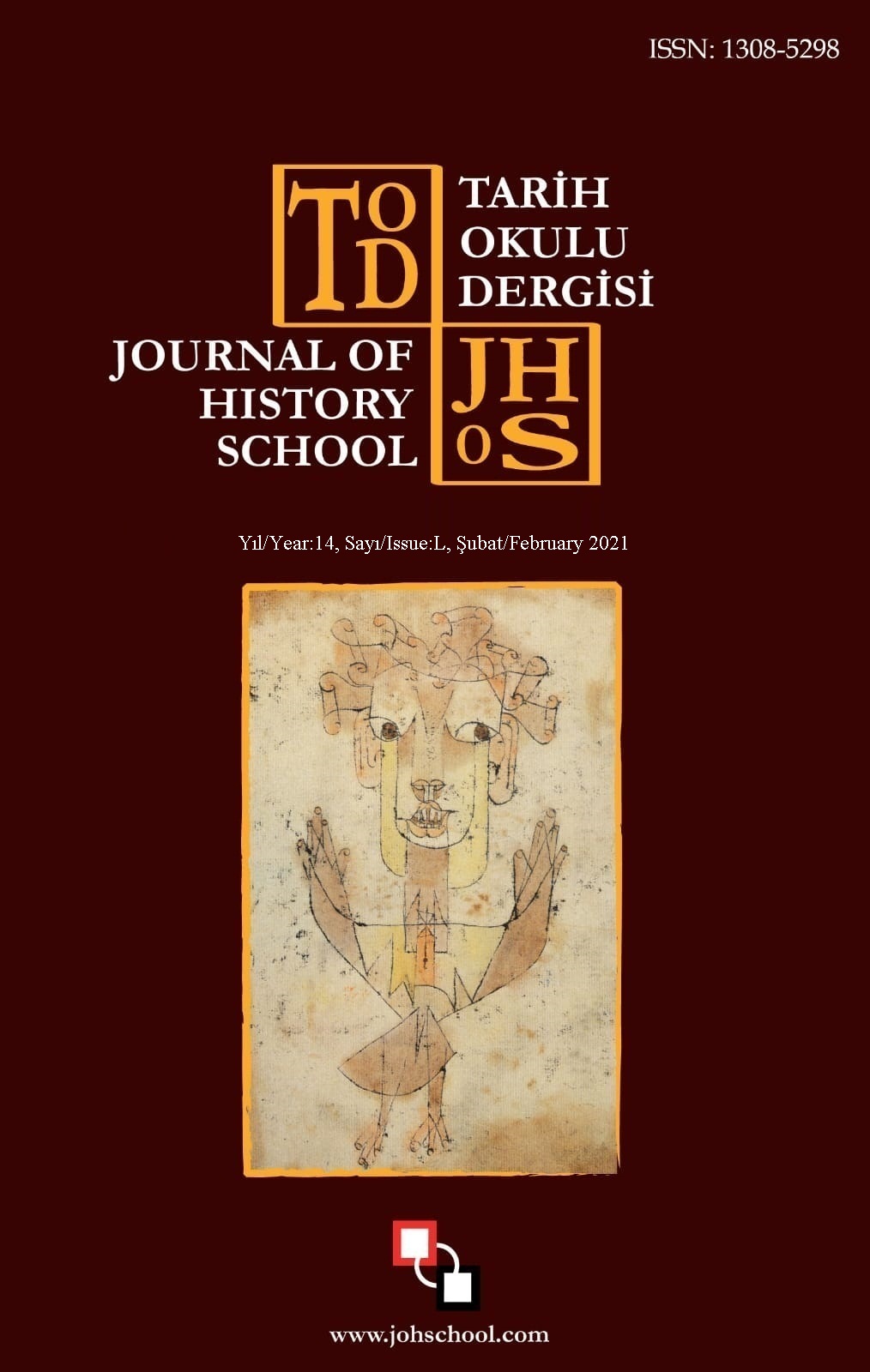Author :
Abstract
- asra kadar milletlerin zenginliği ipek, baharat, tuz gibi tabii kaynaklardan; ipek yolu, baharat yolu gibi ticaret yollarına yakın oluştan; verimli arazilere sahip olmaktan ibarettir. Bu yüzyıldan sonra zenginliğin kaynağı ileri teknik ile fabrikada üretilmiş metalardır. Böylelikle zenginliğin bağı tabiattan kopmuştur. Bu kopuşla birlikte insan, tabiatın bir parçası olduğu hakikatine de yabancılaşmıştır. Yabancılaşma tabiatı da aşarak insanın insana bağını da koparmıştır. Bu yabancılaşmanın kavramsal adına kapitalizm, bilimine de iktisat denmektedir. Kapitalizmin yayılışıyla kapitalizme itirazlar da başlamıştır. Mustafa Kutlu’nun kanaat ekonomisi ideali de kapitalizme Anadolu’dan yöneltilmiş bir itirazdır. Bu çalışmada Mustafa Kutlu’nun kanaat ekonomisi ideali Tarla Kuşu’nun Sesi (TKS) adlı hikâyesinden hareketle açıklanmaya çalışılmıştır. Bunun için öncelikle mülkiyet, emek, sermaye, kâr, rant, faiz, piyasa ve fiyat gibi iktisadi kavramlar kapitalizmle ilişkileri bağlamında açıklanmıştır. Tespitimize göre bu kavramlar kapitalist üretim biçiminin hakim olduğu ekonomik hayattan doğmuşlardır. Tarla Kuşu’nun Sesi hikâyesi ise tarımın hakim olduğu bir iktisadi hayatı işlemektedir. Bu çelişkiyi aşmak için iktisadi kavramları açıklarken kavramların altında yatan zihniyete açıklık getirmeye çalıştık. Hikâyeyi söz konusu iktisadi kavramlar bağlamında incelendik. Tespitimize göre rant, faiz, kâr kavramlarının kanaat ekonomisinde karşılıkları yoktur. Mülkiyet, emek, sermaye, piyasa ve fiyat kavramlarında ise bariz zihniyet farklılığı söz konusudur. Bu yüzden kanaat ekonomisi idealinin temelden kurulacak bir teoriyle mümkün olacağı anlaşılmıştır. Sonuç kısmında bu verilerden hareketle kanaat ekonomisi idealine temel olabilecek bir önerme sunulmuştur.
Keywords
Abstract
Until the 19th century the wealth of nations consists of natural sources such as silk, spices and salt; being close to trade route like the Silk Road, the Spice Road and having fertile soils. After this century the sources of nations’ wealth are the merchandises that produced with high technology in the factory. As a result of this, the bond of wealth with nature is broken. With this break, man has become alienated from the fact that he is a part of nature. Alienation has transcended nature and so cut off the connection between human beings. The conceptual name of this alienation is called capitalism, and its science is called economics. With the spread of capitalism, objections to capitalism have also started. The ideal of Kanaat economy of Mustafa Kutlu is an objection to capitalism from Anatolia as well. In this study, it is tried to explain Mustafa Kutlu’s ideal of Kanaat economy based on the story called ‘’Tarla Kuşunun Sesi’’. For this reason, first of all, the economic consepts such as property ,labor,capital,profit,rent,interest,market and price are explained in the context of their relations with capitalism. According to our observation, these consepts emerged from the economic life dominated by the capitalist mode of production. The story of Tarla Kuşunun Sesi tells an economic life dominated by agriculture. In order to overcome this contradiction, while explaining the economic concepts, we have also tried to clarify the mentality underlying the concepts. We have examined the story in the context of these economic consepts. As a result of our observation, the consepts of rent, interest and profit have no equivalent in the Kanaat economy. On the other hand, there is an obvious mentality difference in the consepts of property, labor, capital, market and price. Therefore, it is understood that the ideal of Kanaat economy is possible with a theory established from the ground up. In the conclusion part, a proposition that can be the basis for the ideal of Kanaat economy is presented with the help of these data.
